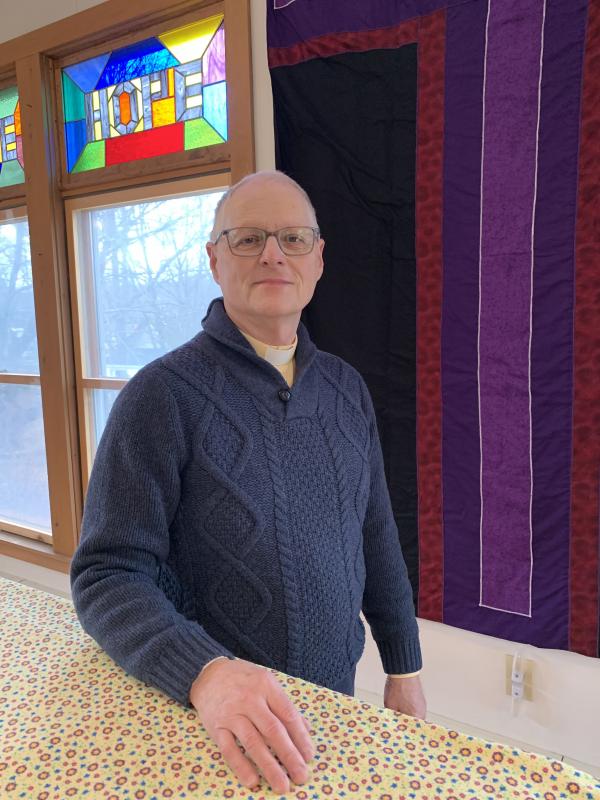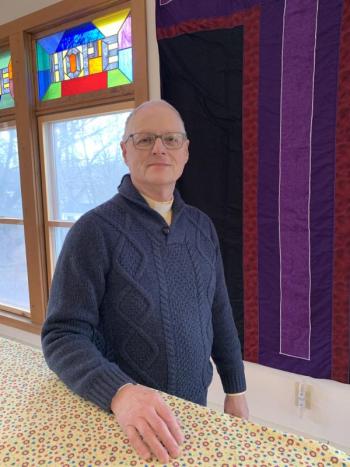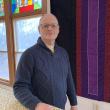Wiscasset’s Tom Junkert on Ukraine: ‘These are my people’
Rev. Tom Junkert has never been to Ukraine to see where his grandparents once lived. If he did want to someday, the Wiscasset man now wonders if, due to Russia’s invasion, there would be any place to visit. “You kind of wonder when you see the images of all they are bombing, what’s going to be left of that country.”
On both sides of his family, Junkert’s grandparents immigrated from Ukraine. Their families had taken Catherine the Great up on her offer to move to Russia and, for generations, including in the Midwest, “were known as ‘Germans from Russia,’” he said. His grandparents arrived in New York from Odessa around 1903 and later settled in Washek, North Dakota. There, they met.
Junkert was 2 when his father Edwin died. While Junkert, now St. Philip’s Church’s priest-in charge, was growing up in Minnesota with his grandparents, his siblings, mother Leone and her sister Ester, he didn’t ask his grandparents much about their lives in and near Ukraine. He told Wiscasset Newspaper last week, it wasn’t something he thought much about as a kid, and they said little of it. He later learned more through family members’ genealogical work.
Junkert’s March epistle to the church’s members and friends was on his family ties. He wrote, “My family did not talk about that with my generation. If they did, it was always in hushed tones. I can remember hearing stories of the fears that they experienced, the shame that was felt during (World War II) because they were Germans. Even though several of my uncles and aunts, and my own dad served (the U.S.) in military service. I grew up ... not having a deep appreciation or understanding of my heritage.
“Now, when I hear of the cities in Ukraine being under siege, especially the main port city of Odessa, my heart aches. I feel the pain and the fear that the people of Ukraine must feel as they wonder what their country will suffer, what they will suffer and experience with the Russian invasion,” Junkert wrote.
Junkert said he and congregation members discussed the invasion. The concern over it “crosses nationalities,” he said. “I got a lot of good feedback. There was a lot of sympathy and a lot of empathy. And they feel as helpless as everybody else does.” He said they also discussed what they can do, including encouraging people to give to Episcopal Church Relief and Development. He said the program is helping support relief work “right on the ground, working with the refugees who are coming across the border into Poland and Hungary and Moldova.”
Junkert has been following news coverage. “These are my people. So it does make an impact and it makes me even more conscious” of Russia’s invasions of other regions in the Putin era, he said. “You wonder, is this going to be the prelude to another world conflict? I don’t know.”
Viewing and reading the news as a Ukrainian descendent, he finds the Ukrainians’ resilience, courage and national loyalty incredible. And as an American, he is feeling more of a sense of global community. He supports the ways the U.S. has responded; other than that, he leaves the political questions to those with greater insight, he said.
He and wife Jane take a break from the news coverage when it gets to be “too much,” he said. He hopes others do, too, to avoid becoming numb to it, he said.
























